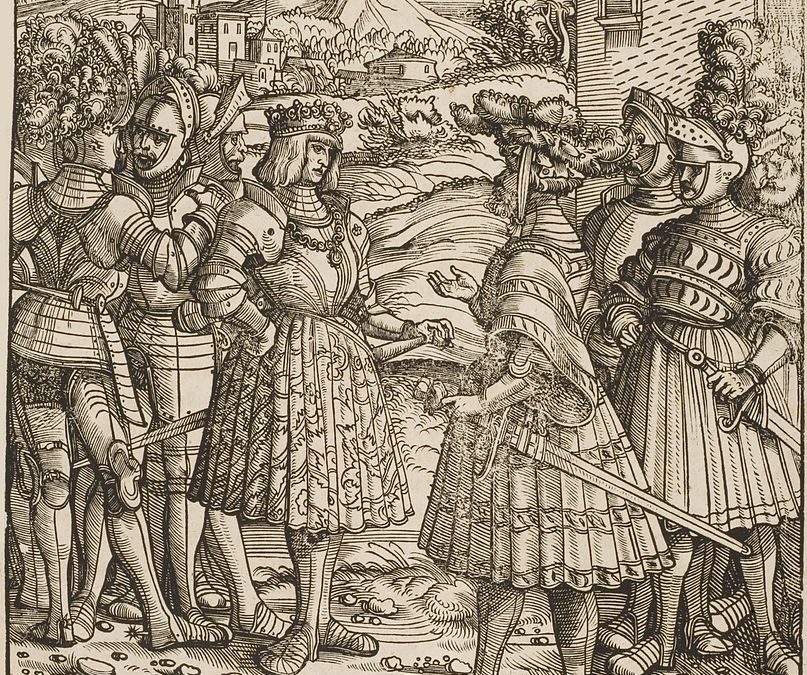Today’s blog post is by Niall White.
In the oft quoted comedy classic Monty Python and the Holy Grail, King Arthur and his Knights of the Round Table are repeatedly met with roadblocks on their quest. These roadblocks are often in the form of gatekeepers who demand the knights participate in some sort of “bring me a rock” exercise. Whether it is to bring an obscure plant, answer a seemingly simple question (e.g., what is your favorite color), or to cut down a tree with a herring, the knight’s journey seems fraught with unusual challenges.
Contrast this with the more recent Jumanji films, where the heroes meet a guide rather than a gatekeeper. Nigel Billingsley enthusiastically introduces himself and provides instructions, tools, and even gives them a short, slightly odd, drive towards their starting point. Rather than making one or more requests of his companions before allowing them to start their journey, he provides insight and guidance – even if a bit confusing – ushering them along.
Whether or not you are in a formal leadership position, you likely will have many opportunities to be either a gatekeeper or guide for others. These approaches aren’t mutually exclusive, and there may be a time and place for each. The real opportunity is finding a way to help those around you progress in their endeavors, and advance towards becoming their best selves.
Consider a fictional example of Joan and Tressa. Joan is a manager with the ear of many senior leaders. Tressa is an early career professional who is enthusiastic about her assigned role and willing to take initiative in tasks outside her role. Tressa recognized a need in the department to build greater belonging amongst the employees that worked both locally and remotely. After coming up with a plan to hold monthly in-person and virtual gatherings and getting some early feedback from a few colleagues, Tressa proposed the idea to Joan.
Joan could respond in several different ways. One way is to enthusiastically receive the proposal, offering praise and gratitude for Tressa’s initiative, pointing out the positive aspects and providing recommendations for areas that can be improved. Joan could offer support, ask helpful questions, and even put Tressa in contact with a few people that might assist. Or Joan could focus on pointing out the flaws in Joan’s idea rather than the strengths. Joan could ask Tressa to come back with a revised proposal, and do that several times. Joan could also ignore Tressa’s request, and then forget about it altogether.
These options highlight several key themes. Joan’s first “guide like” response exhibited a “Yes, and” mentality of validating and acknowledging Tressa’s proactivity, building on the proposal with ideas, suggestions, questions, and resources to succeed. This “let me get out of your way” approach, when managed well, is likely to produce a positive experience, whether Tressa’s proposal succeeds or fails.
Joan’s second response is more “gatekeeper” in nature, and eats up Tressa’s time, lengthening the process, and introducing more opportunity for Tressa to become discouraged and drop the idea altogether, even if the ordeal was deemed a “good learning experience” in Joan’s eyes. The gatekeeper experience tends to be discouraging, and Tressa might hesitate to make recommendations in the future. Questions and criticisms to a proposal aren’t inherently bad and can even prevent heartache and challenges down the road.
The difference is how the feedback is presented – a guide’s questions and critiques are quite different than a gatekeeper’s One enables and encourages, the other disables and discourages. Joan’s third response, ignoring the request, is the most damaging. This communicates, even if unintentionally, that Tressa’s idea doesn’t matter and by extension, neither does Tressa.
Of course, gatekeepers and guides aren’t only found in movies. They show up in the workplace too, in a variety of combinations and arrangements. The real opportunity is finding a way to help those around you find positive success in their endeavor, while taking one step further towards becoming their best selves. How might we be more guide than gatekeeper?
(Image credit: Woodcarving of Maximilian talking to German knights, public domain)

